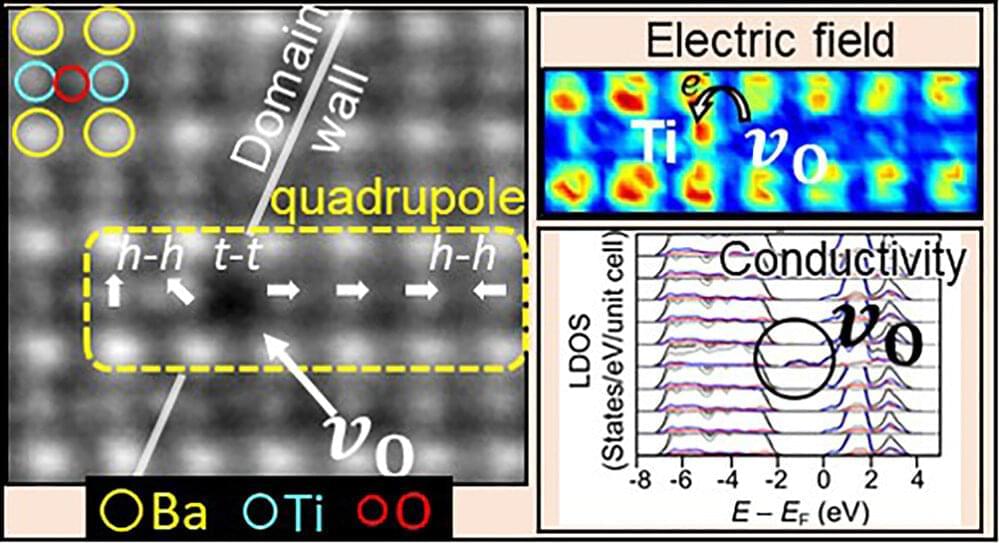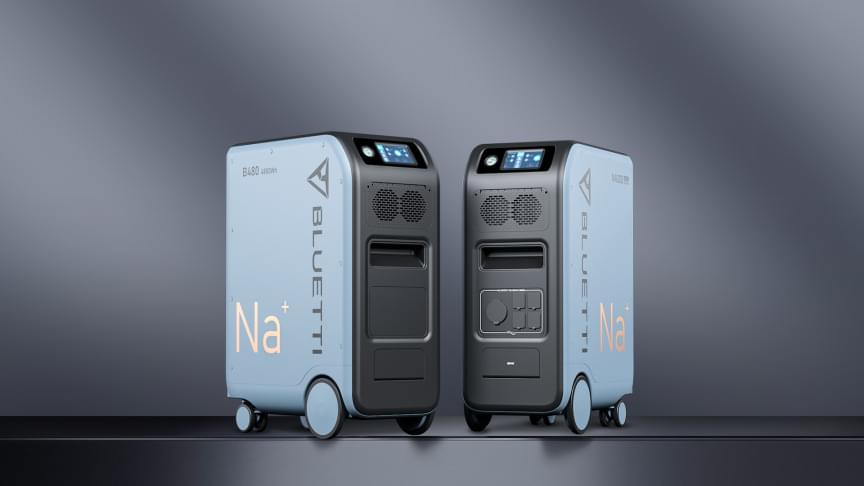The sleek ferry would utilize an electric propulsion system, allowing for quiet, emission-free travel.
Get the latest international news and world events from around the world.

Changing the properties of ferroelectric materials
Researchers in the Technion Department of Materials Science and Engineering have succeeded in changing a material’s electrical properties by vacating an oxygen atom from the original structure. Possible applications include electronic-device miniaturization and radiation detection.
What do ultrasound imaging of a fetus, cellular mobile communication, micro motors, and low-energy-consumption computer memories have in common? All of these technologies are based on ferroelectric materials, which are characterized by a strong correlation between their atomic structure and the electrical and mechanical properties.
Technion–Israel Institute of Technology researchers have succeeded in changing the properties of ferroelectric materials by vacating a single oxygen atom from the original structure. The breakthrough could pave the way for the development of new technologies. The research was headed by Assistant Professor Yachin Ivry of the Department of Materials Science and Engineering, accompanied by postdoctoral researcher Dr. Hemaprabha Elangovan and Ph.D. student Maya Barzilay, and was published in ACS Nano. It is noted that engineering an individual oxygen vacancy poses a considerable challenge due to the light weight of oxygen atoms.


Facebook Hosted Three Huge Concerts in the Metaverse and They Seriously Flopped
Meta announced a slate of big name virtual reality concerts set to take place entirely in the metaverse last month — and nobody seemed to notice.

China, US, UK, France and Russia pledge to avoid nuclear war
😀
Five of the world’s largest nuclear powers pledged on Monday to work together toward “a world without nuclear weapons” in a rare statement of unity amid rising East-West tensions.
“A nuclear war cannot be won and must never be fought,” said the joint statement, which was issued simultaneously by the United States, Russia, China, the United Kingdom and France. “As nuclear use would have far-reaching consequences, we also affirm that nuclear weapons — for as long as they continue to exist — should serve defensive purposes, deter aggression, and prevent war.”
The statement also stressed the importance of preventing conflict between nuclear-weapon states from escalating, describing it as a “foremost responsibility.”



AI could repair the damage done
First, AI can be taught to forget. This means that not only can AI identify who knows what about a topic, but it can also contextualize that information and recognize when information becomes outdated and redundant, meaning it can ‘forget’ unuseful data as needed. Second, using non-sensitive information drawn from existing tools, AI is able to see through silos. It can use all kinds of information to draw conclusions at scale, creating in one integrated platform a live map or ‘knowledge network’ of who knows what within an organization.
In short, using data, AI can build a network of knowledge and expertise in real time. When searching for answers, everyone can then access the most accurate, up-to-date information or the best expert, at that specific point in time, to help instantly.
Before the zettabytes of data grow to yottabytes, it’s time to embrace AI’s role in tackling data overload. With AI, we can start leveraging data in the way businesses and employees demand: to empower connection, problem-solving, collaboration, and finding the answers we need.

49.9 MW solar farm with biodiversity enhancements
BayWa r.e., in partnership with Grüne Energien, has received planning permission for the development of the Rag Lane Solar Farm project near Bristol, UK.
Construction of the 49.9 MW solar project in South Gloucestershire is planned to commence at the beginning of 2023, with grid connection expected in the second half of 2023. When complete, Rag Lane will deliver approximately 52 GWh/year of clean renewable electricity for distribution to the national grid, the equivalent to the annual electrical needs of approximately 15,000 family homes.
BayWa r.e. is committed to ensuring maximum benefit to the local community and environment in the development of Rag Lane. As part of the construction of the project, BayWa r.e. will provide biodiversity enhancements to the local area including the reinforcement and planting of 1.7 km of new hedgerows as a haven for wildlife, as well as ecological connectivity and improvements to the public footpath that runs across the site.
The company also anticipates that at least 20 local jobs will be created through the construction phase, with 2–3 long term jobs through the operational life of the project.